Kuss: First WorldTour season was a huge learning experience
American hope carries burden of expectation lightly
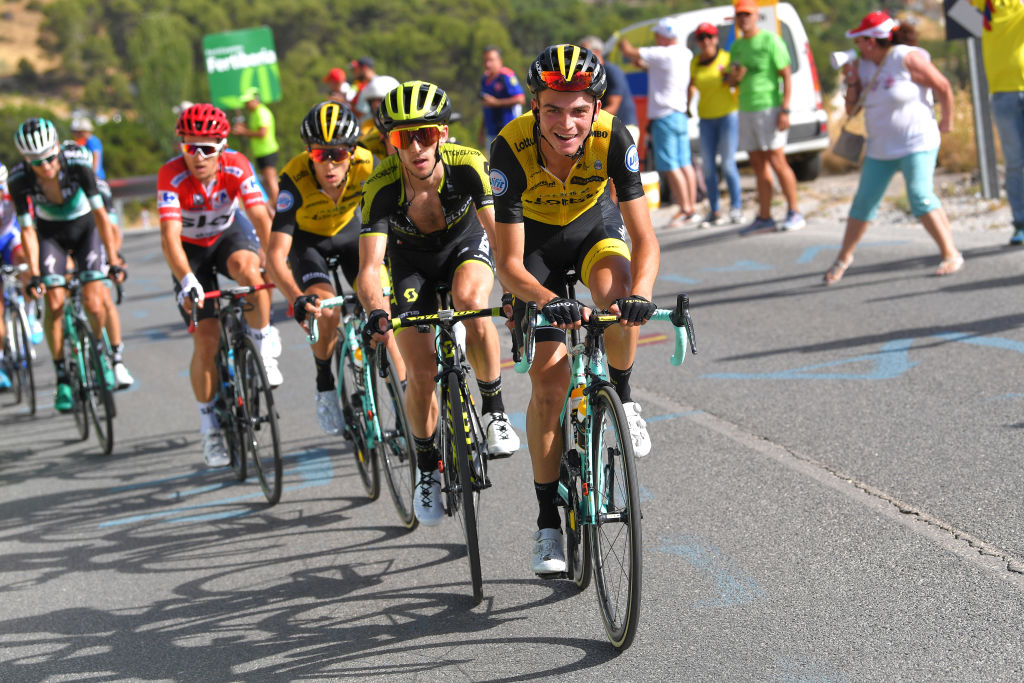
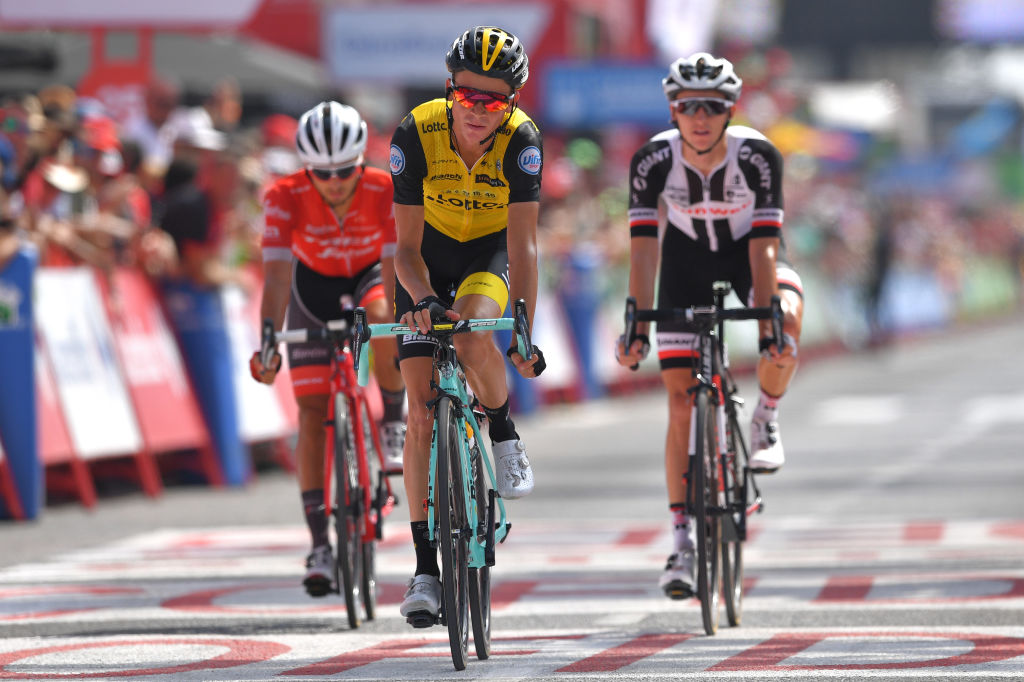
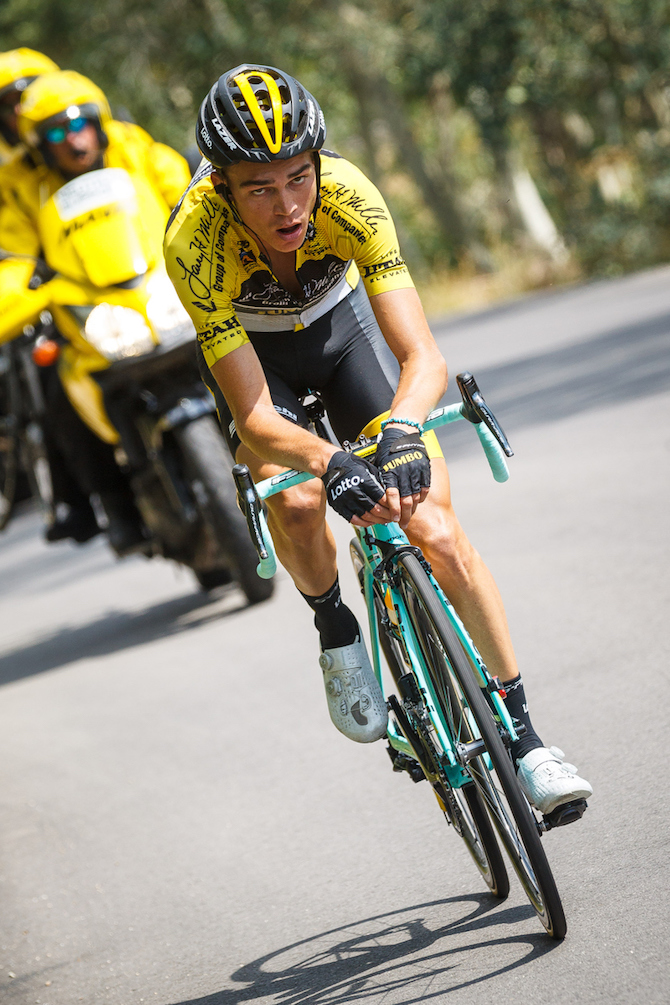
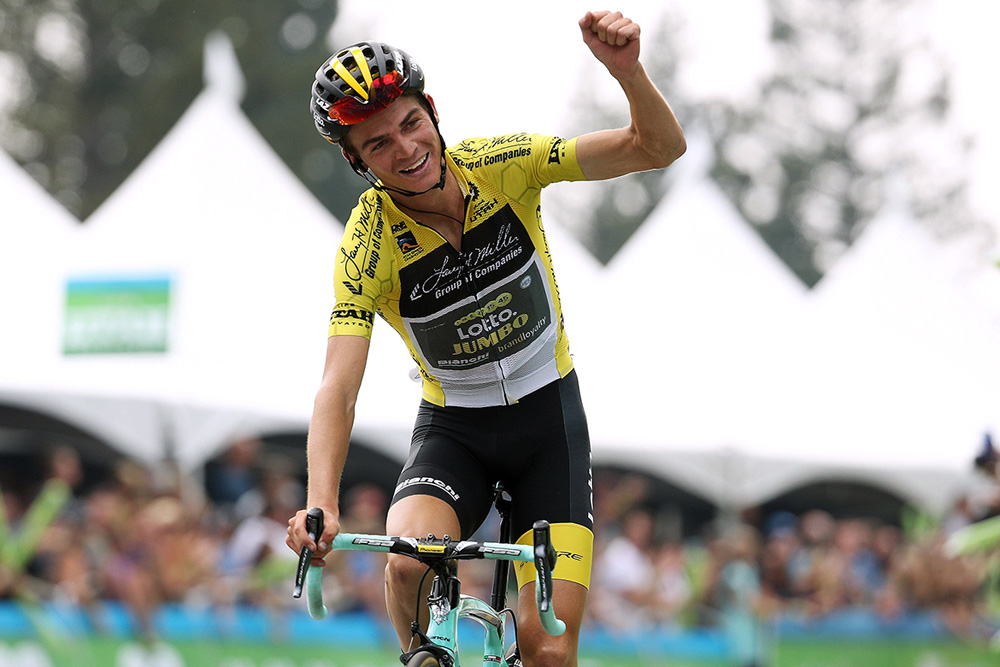
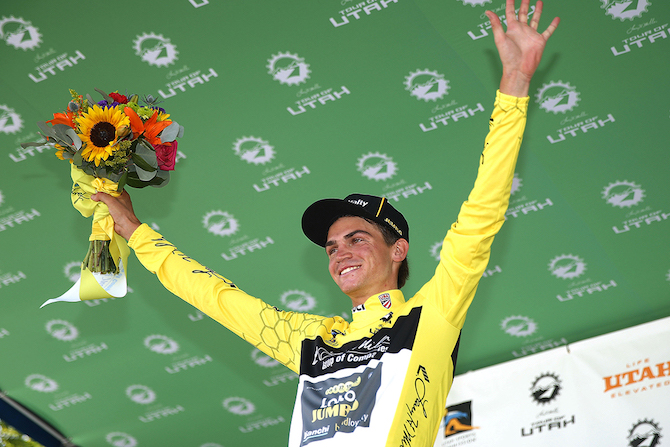
On the face of it, six days in early August changed a great many things for Sepp Kuss, though the foundations for his sparkling run of victories at the Tour of Utah had already been laid during the unforgiving opening six months of his time at LottoNL-Jumbo.
The 24-year-old stepped up from Rally Cycling in 2018 and was given sustained exposure to some top-level racing in the first half of the season, lining out at the Tour of the Basque Country, Tour of the Alps and Critérium du Dauphiné.
Results, understandably, were thin on the ground, but the opportunity to gauge himself against some of the climbing grandees of the peloton proved a useful one.
"It was a huge learning experience and I just kept at it. For a neo-pro, you know you're not likely to get results at those kinds of races so for me there was no pressure - it was just learning and trying to have fun in those races and soak in all the experience," Kuss told Cyclingnews at the Tour of Guagnxi.
"Then, halfway through the season, I found my legs, and once you have that it makes it easier to get results in those kinds of races."
After a block of rest in late June and July, Kuss returned to action in what appeared to be the form of his life, claiming three stage wins and overall victory at the Tour of Utah. The sheer effervescence of his climbing was striking, and the former mountain biker immediately found himself being hailed as the next great hope of American bike racing. The tag is one he neither solicits nor rejects; it simply comes with the territory.
"At the end of the day, I just like to ride my bike and race my bike, and I'm not too worried about what other people have planned for me or whatever," Kuss said.
Get The Leadout Newsletter
The latest race content, interviews, features, reviews and expert buying guides, direct to your inbox!
"I had an idea of what my level was going to be coming into Utah, but I didn’t expect it to be that good. But then again, Utah is a much different race to climbing races in Europe. It’s another thing again to transfer that performance to the European peloton, but it certainly gave me a lot of confidence."

It also elevated Kuss' standing within his own LottoNL-Jumbo squad. Although Vuelta a España participation had been pencilled into his schedule since the start of the season, Kuss' volley of victories in Utah convinced the Dutch team that he could do something more than simply ride around in Spain.
In the tough opening week in Andalusia, the youngster was deployed to work on behalf of Steven Kruijswijk and George Bennett, producing a particularly impressive display of pace-making on the Alfacar on stage 4 before infiltrating the break the following day.
"Before Utah, the team were thinking I'd just go there and try to make it through and help out where I could," Kuss said. "After Utah, the team and I had a lot more confidence, and that helps when you’re against some really top competition. I used that confidence and the form I had from that race in the first week of the Vuelta especially. It made it easier to be up there in the front."
The second week of the Vuelta proved rather more trying and stage 15 to Lagos de Covadonga was something of an ordeal, but Kuss could draw solace from how he steadied the ship thereafter, working where he could in Kruijswijk’s behalf and reaching Madrid to complete his debut Grand Tour in 65th place overall.
"It was a huge learning experience. Every day there was something different, and you get a sense of how your body reacts to each stage so that was interesting for me," Kuss said. "The first half was really good, but in the second week I was really suffering. But after couple of easier days I started to feel better again in Andorra. I think it was stage 15, where I was really suffering all day. But I think everybody has those days and that’s part of it. And you feel that much better when you make it to the end of the stage."
The prospect of calling time on his Vuelta on the second rest day was never seriously entertained. "Maybe if I was really, really on my hands and knees at a point in the race, the team might have said it was better to step out of the race, but once I started to feel a bit better after a difficult couple of stages, I knew I could keep going," he added.
Fatigue
Received wisdom says that completing a first Grand Tour adds a number of watts to a young rider’s threshold power output, though Kuss laughingly confessed that he would likely have to wait until 2019 to assess the lasting benefits of his three-week stint in Spain. In the immediate aftermath, at least, the overriding feeling was one of fatigue.
"Maybe next season that’ll come around, but after the Vuelta, I was just really, really tired," he said. "I was definitely feeling the effort of that race, which was to be expected. It was the longest race I’ve ever done, so I definitely got tired but most of all I just learned a lot from it, and that’ll take me pretty far."
The Colorado native brings the curtain down on his first WorldTour season at the Tour of Guangxi this week, where he will ride without any particular objective. Only stage 4 to Nongla offers a chance for a rider of his skills though, like many in the peloton, he is unsure of what he has left in the tank at this juncture.
"You either have it or you don’t, so we’ll see what’s possible," he said.
His 2019 schedule, meanwhile, has yet to be drawn up, though another Grand Tour appearance seems likely to feature.
"If it’s the Vuelta again, that would be great, but the Giro always looks really intriguing, although that’s also a more heavy race, so it might be for later on. We’ll see," Kuss said.
"In any case, going back to some of the races I did this year and struggled in would be interesting, just to see how I’ve progressed."

Barry Ryan was Head of Features at Cyclingnews. He has covered professional cycling since 2010, reporting from the Tour de France, Giro d’Italia and events from Argentina to Japan. His writing has appeared in The Independent, Procycling and Cycling Plus. He is the author of The Ascent: Sean Kelly, Stephen Roche and the Rise of Irish Cycling’s Golden Generation, published by Gill Books.